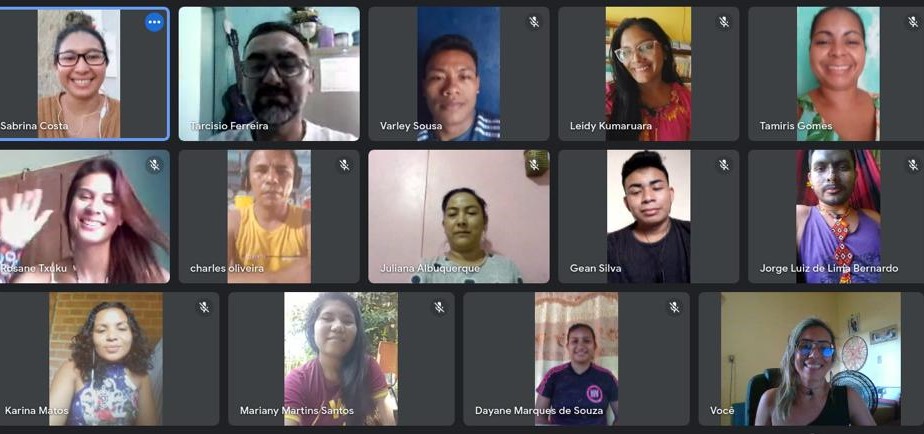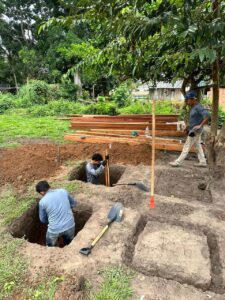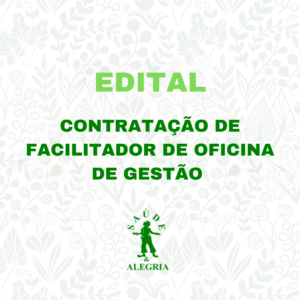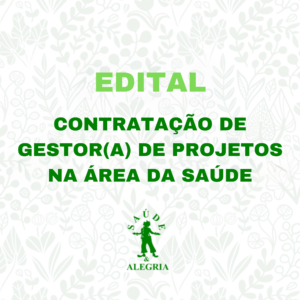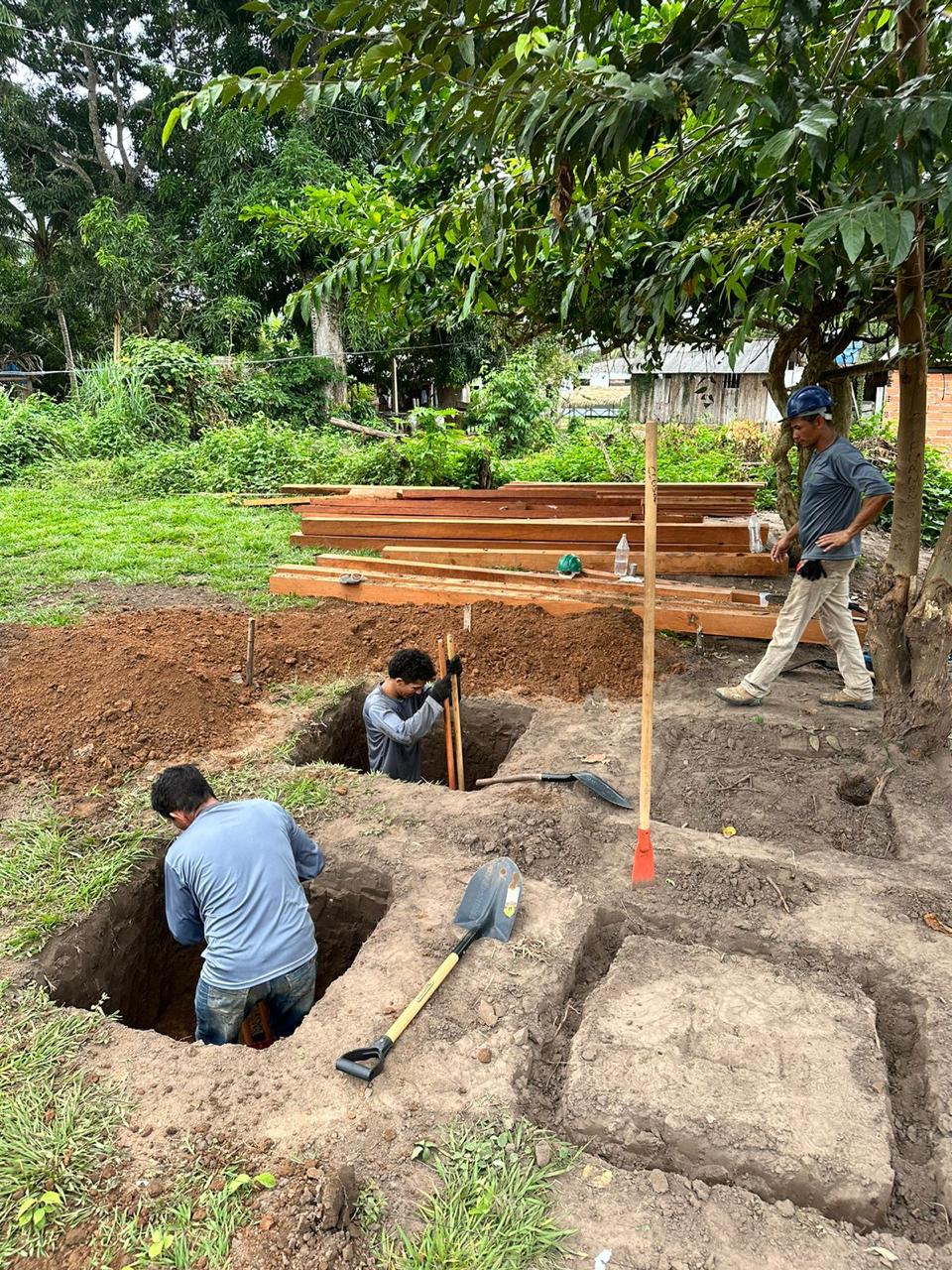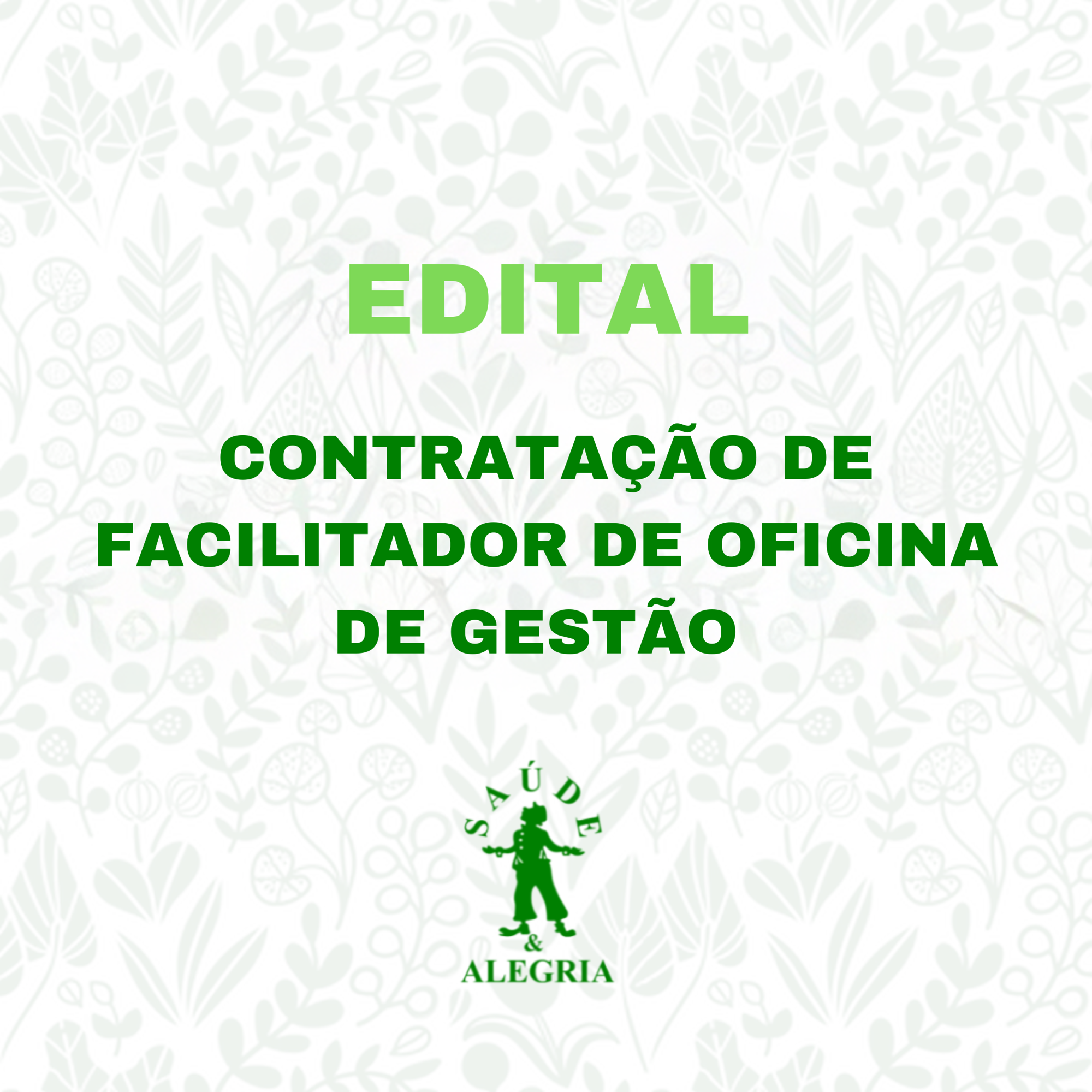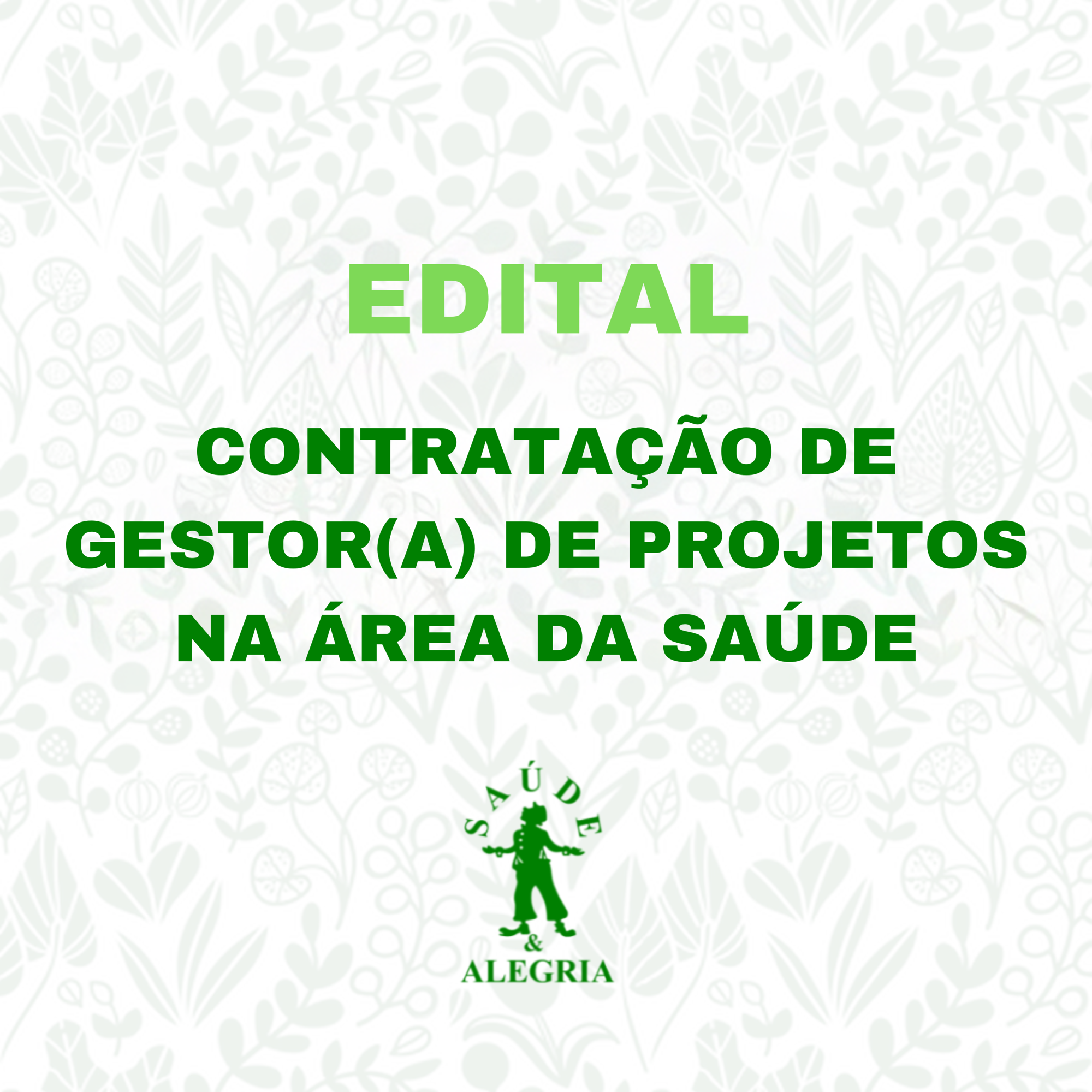June 29, 2022 / Education, Culture and Communication / Community Networks
Students from three states of the Legal Amazon (Acre, Amazonas and Pará), participated in the first workshop last Saturday (06/25)
The use of free software allows the user to modify and redistribute computer programs or cell phone applications as needed. One of the basic principles of this culture is to allow the internet user to be free to reconfigure it according to his or her needs. The theme was selected by the School of Community Networks of the Amazon, after immersion in the seven territories participating in the training. Last Saturday (June 25th), twenty-one students participated in the first meeting, which was taught by professor Tarcísio Ferreira, an expert in computer projects and digital culture.
In the training, he highlighted the principles of free technologies and tools to support entrepreneurship, differentiating software from proprietary. “The proprietary software is very heavy, very fragile with viruses and a closed source code. Without this source code we can’t do any kind of work. The operational system is paid for, it can’t be distributed or sold, because it doesn’t belong to the person who has it in his computer, because the person pays only for the use license. If you sell or distribute it, you are committing a piracy crime or a federal crime. One of the biggest differences is that with software you have complete access to the source code and all users can access it, have more security, use the system, it’s much lighter” – he explains.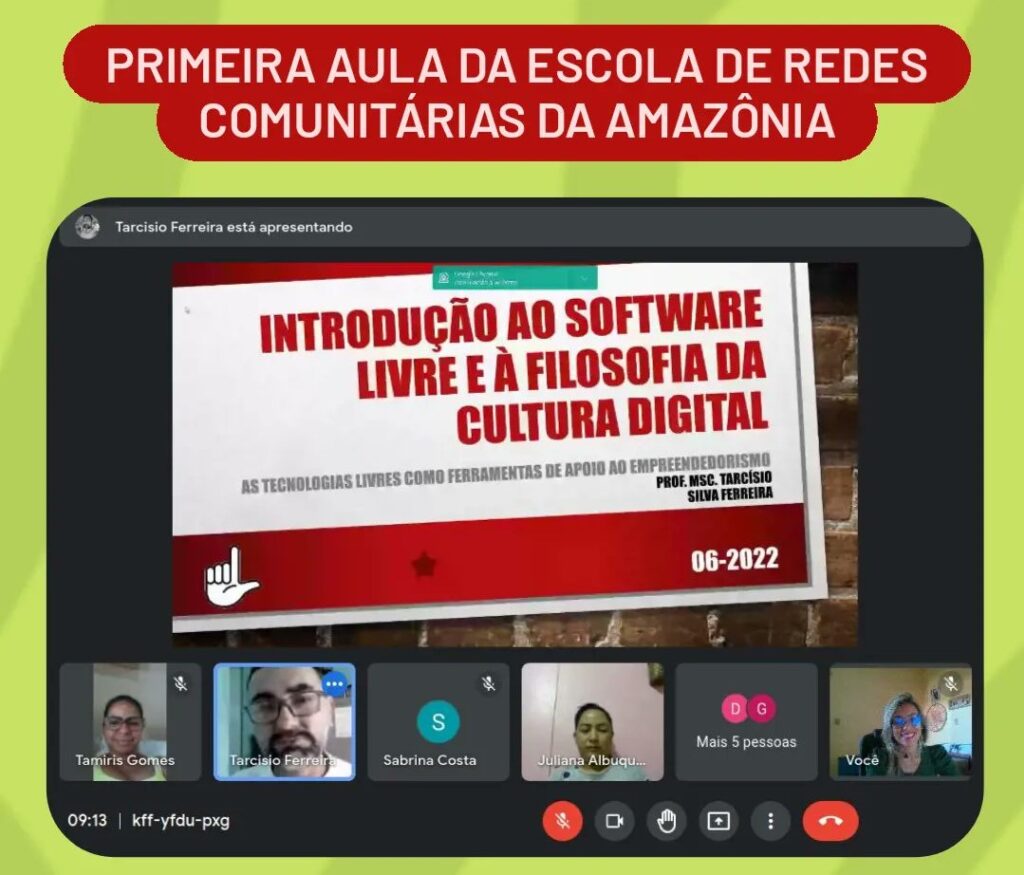
The use of free software by rural, indigenous and quilombola communities can allow greater freedom and autonomy for the empowerment of these populations, by enabling four fundamental freedoms: freedom to run the program for any purpose; to study how the program works and adapt it to their needs; to redistribute copies to help their neighbor; and, to improve the program and release its improvements for the beneficiary to benefit from.
Tarcísio emphasized that the philosophy has broadened the protagonism of young community leaders and enabled the collective use of collaborative platforms: “The graphical interfaces of free programs are very easy to work with. Here we don’t work with Word, Excel or PowerPoint. But with text editor, spreadsheets, and slides, besides other advanced programs for diagramming, newspaper editor, video, and audio” – he comments.
The students representing the Solimões Village, the Guardians of Good Living, the Waters of Caring Network, the Marajaí Village, the Formigueiro Group, the Wayuri Network, and the Puyanawa Village took part in the afternoon shift, in an activity to discuss digital culture. They were stimulated by the teacher, to talk about the types of popular culture in their community, how to potentiate and strengthen their own culture in their own networks. “Working on this issue of culture within the digital world, we realized that there are many possibilities, especially because most of them already have programs to disseminate their cultures,” Ferreira said. For the next meeting, the students have the task of presenting a homemade three-minute video about the local culture as a way to potentiate it.
For Thamires Gomes, a student from the Rede Águas do Cuidar (Waters of Care Network), broadening the discussion on the theme is important to strengthen actions in the different spaces where the students are active: “This class was very important because we need to know about the programs so that we can handle and update them so that the photos, videos, and podcasts stay in the best possible shape. The class was very good, we had a very good learning experience. Primordial”.
School of Community Networks of the Amazon
The School is the education and training pillar of the project “Connecting the Disconnected” promoted by the organizations APC and Rhizomatica and executed in Brazil by Projeto Saúde e Alegria. The initiative seeks to connect disconnected communities through the development of models, capacities, and forms of sustainability for populations with a focus on technical assistance, capacity building, advice for advocacy, and community mobilization.
The schedule of classes is distributed between the months of June and December 2022. The following themes will be covered: community communication; community and environmental journalism; communication protocols and autonomy; data security; technological innovation and communication entrepreneurship; standing forest media activism; history of indigenous peoples and afro-descendants in the Amazon; total diversified area (electives and options); podcast/audacity workshop; radio transmitter workshop; digital media workshop; community radio/webradio workshop.
The School has a council of experts formed by Beatriz Tibiriçá (General Coordinator, Coletivo Digital), Georgia Nicolau (Director of Projects and Partnerships Pró Comum), Jader Gama (Researcher – UFPA), Doriedson Almeida (Professor – UFOPA), Karina Yamamoto (Researcher – USP and Jeduca), Guilherme Gitahy de Figueiredo (Professor UEA – Tefé – AM) and Carlos Afonso (Executive Director – Instituto NUPEF).

